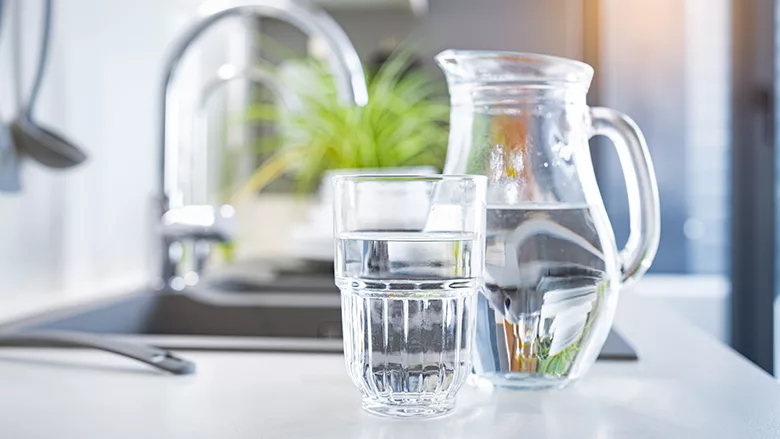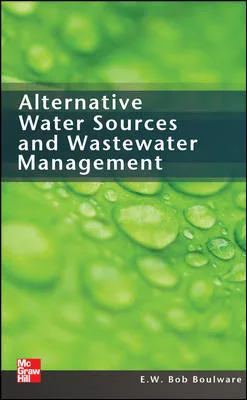Matt Michel: 13 signs of water treatment opportunities
Consumer interest in water purification and water softeners has soared post-COVID-19.

Image courtesy of fcafotodigital / iStock / Getty Images Plus
Most plumbers are missing a golden opportunity for add-ons with point-of-use or whole-house water purification systems and/or water softeners. Consumer awareness of the benefit of water purification has been raised by the pandemic and well-publicized municipal failures. Many, if not most consumers are highly sensitive to contamination today, whether air- or water-borne. Here are 13 indicators that homeowners might be interested in water treatment options.
9 indications of water purification opportunities
First, virtually every homeowner is a candidate for water purification. Yet, some homeowners are better candidates than others. To identify them, your plumbers need to be observant and ask questions. When the reason for the original service call is complete, all the plumber needs to say is, “I noticed that…” or, “You mentioned that…” and follow it with, “Have you ever considered a water purification system?”
1. Well Water — anyone who is using well water for personal use, especially in an agricultural area, is a candidate for water filtration. Depending on the depth of the well and geological formations above it, well water can carry elements from pesticides, fertilizers, and human and animal waste.
2. Presence of bottled water — When it appears that a homeowner uses lots of bottled water (e.g., cases stacked in a corner), you have a candidate for water purification systems. Ask the homeowner how much she spends on bottled water in a week or month. Sometimes all you need to say after the amount is, “Huh.” When the homeowner says, “What?” you are presented with an opportunity to talk about how much money could be saved by bottling their own water.
3. Areas known for foul-tasting or smelling water — Some parts of the country have foul-smelling water, such as sulfur water. Others have water that tastes, well, different (e.g., some rural water co-ops). In either case, homeowners are often open to water filtration. This is especially true if the homeowner did not grow up in the area.
4. Municipal water failures nearby — If your service area is in or near one of the cities with well-publicized water problems (e.g., Jackson, Mississippi or Flint, Michigan), most homeowners are well aware of the problems. Ask if the homeowner has heard about the problem. If so, note that it’s a good idea to use a water purification system to protect your family if the problem shows up locally.
5. Coffee and tea drinkers — If there are signs that someone in the house is an avid coffee or tea drinker, ask if the homeowner has ever enjoyed coffee or tea made from purified water. Note that the taste all starts with the water.
6. Foodies — People who appear to be into food and home cooking are good candidates for water purification. Ask if they wash their vegetables, then note how you find they taste better with purified water.
First, virtually every homeowner is a candidate for water purification. Yet, some homeowners are better candidates than others. To identify them, your plumbers need to be observant and ask questions.
7. Refrigerators without water dispensers — Some high-end refrigerators (e.g., some Sub-Zero models) do not have water dispensers. These are people willing to invest in their home. Simply note that they own a great refrigerator, but there’s no filtered water. Ask, “Don’t you want that?”
8. Runners and people into fitness — If the homeowner appears to be into personal fitness, is wearing a 5K race shirt or has other indicators, you have a great candidate for water purification.
9. Babies — Anyone with an infant is likely hypersensitive to water quality. This is especially true if the baby is formula fed and the formula is prepared from a mix.
4 indications of water softener opportunities
Anyone who lives in an area with hard water is a candidate for a water softener. Promoting these should be a standard part of your company marketing and presentation. But, like water filtration, some homeowners are better candidates than others.
1. Stains — If the water leaves stains, this is a sign of mineral deposits. Usually, a water softener is all that is needed to soften the water and remove the minerals.
2. Frequent repairs — If there are an increasing number of repairs, it might be related to hard water. The mineral deposits of hard water result in scale buildup that can foul valves, degrade appliances and damage pipes.
3. Low water volume — As scaling from hard water builds up, water volume is reduced. Also, scaling inside appliances reduces appliance efficiencies.
4. Film on glasses after washing — The white film or water spots on a glass after washing in a dishwasher is likely the result of hard water reacting with the detergent. A water softener should reduce or eliminate the water spots.
The ideal solution for homeowners in a hard water location is to get both a water purification/filtration system and a water softener. Before people can invest in these, they need to be aware of their existence and the benefits they offer. Because many people are unaware, it is the job of the plumbing professional to let them know.
Looking for a reprint of this article?
From high-res PDFs to custom plaques, order your copy today!







